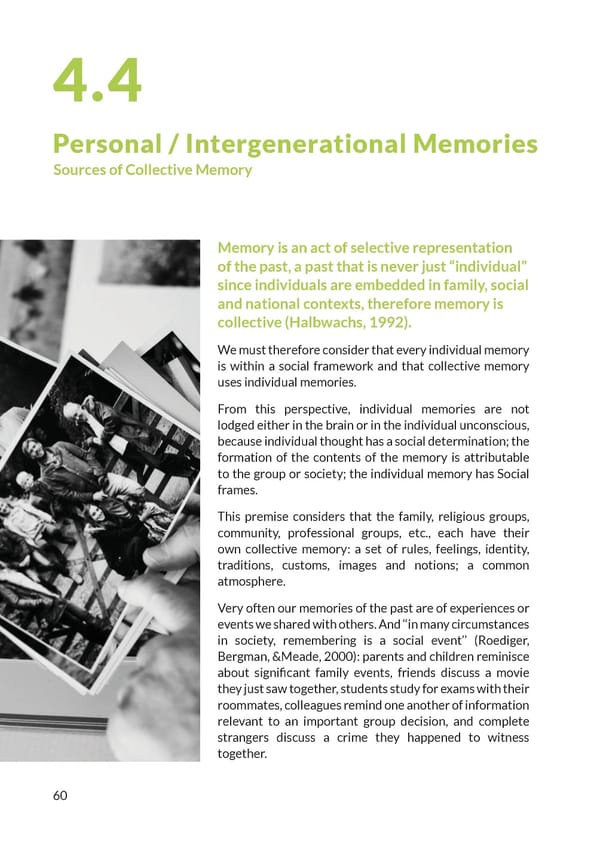4.4 Personal / Intergenerational Memories Sources of Collective Memory Memory is an act of selective representation of the past, a past that is never just “individual” since individuals are embedded in family, social and national contexts, therefore memory is collective (Halbwachs, 1992). We must therefore consider that every individual memory is within a social framework and that collective memory uses individual memories. From this perspective, individual memories are not lodged either in the brain or in the individual unconscious, because individual thought has a social determination; the formation of the contents of the memory is attributable to the group or society; the individual memory has Social frames. This premise considers that the family, religious groups, community, professional groups, etc., each have their own collective memory: a set of rules, feelings, identity, traditions, customs, images and notions; a common atmosphere. Very often our memories of the past are of experiences or events we shared with others. And ‘‘in many circumstances in society, remembering is a social event’’ (Roediger, Bergman, &Meade, 2000): parents and children reminisce about significant family events, friends discuss a movie they just saw together, students study for exams with their roommates, colleagues remind one another of information relevant to an important group decision, and complete strangers discuss a crime they happened to witness together. 60
 MemoryHandbook new Page 59 Page 61
MemoryHandbook new Page 59 Page 61